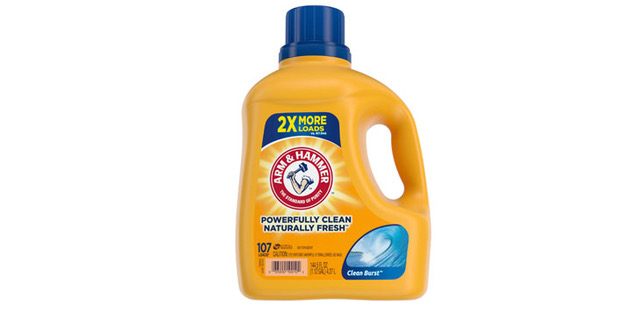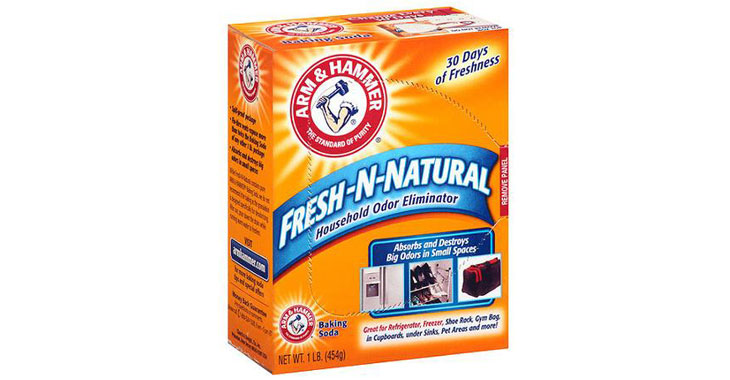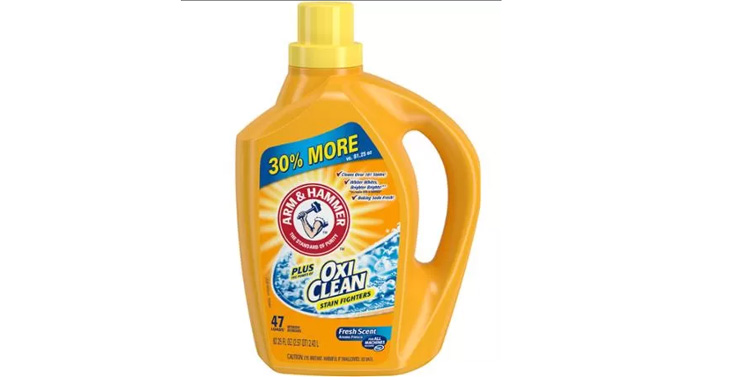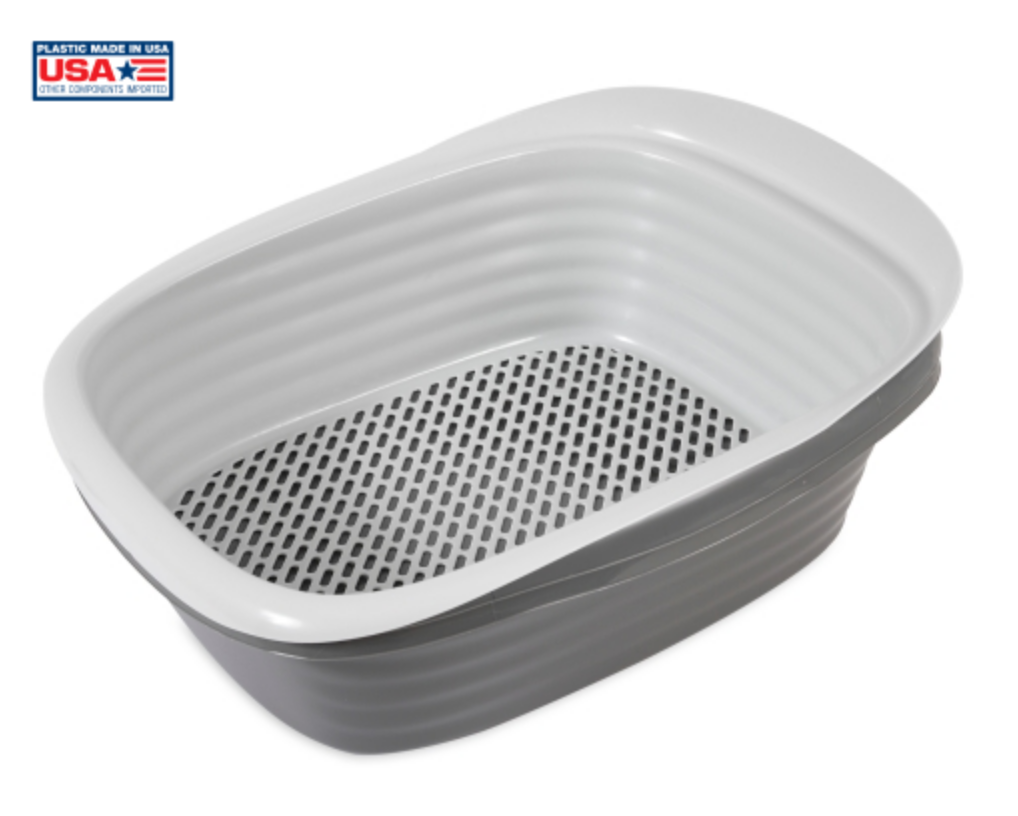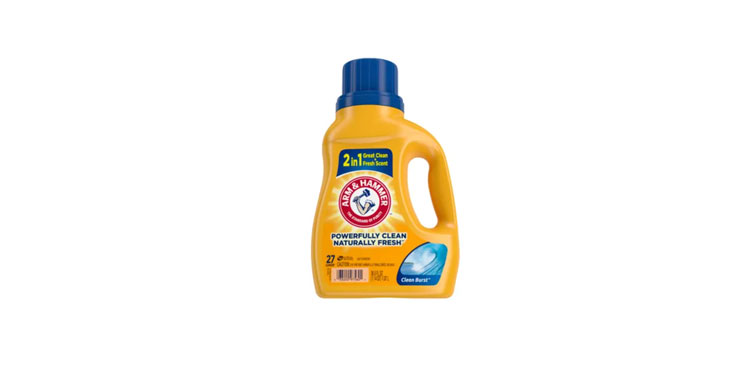
Arm & Hammer Clean Burst Laundry Detergent
Allegations: Misleadingly marketing products as environmentally friendly
June 2015: A federal judge granted final approval of the settlement.
February 2015: A federal judge preliminarily approved a settlement of this class-action lawsuit. According to the settlement terms, class members with proof of purchase may receive a full refund for every purchase and class members without proof of purchase may receive a $4 refund for up to five purchases. In addition, the company has removed the phrases “Natural Deodorant” and “Natural Protection” from the product labels.
September 2013: A federal judge dismissed some of the claims in a class-action lawsuit filed against Church & Dwight, Inc. for allegedly falsely marketing its Arm & Hammer® Essentials™ Natural Deodorant. The complaint, originally filed in March 2012, alleges that the company labels and advertises the deodorant as “all natural” when it actually contains artificial and synthetic ingredients. The judge dismissed the claims based on the company’s advertising because the allegations were too general. The judge allowed the allegations based on the label representations to move forward finding that the plaintiffs’ allegations were specific enough. (Trewin et al v. Church & Dwight, Inc., Case No. 12-cv-01475, D. NJ.).
For more information about other class-action lawsuits regarding natural claims and TINA.org’s coverage of the topic, click here.
Allegations: Misleadingly marketing products as environmentally friendly
Allegations: Misleadingly marketing that products contain enough detergent to wash 107 loads of laundry
TINA.org has tracked more than 150 lawsuits alleging greenwashing.
When it comes to supporting ad claims, there’s no substitute for product testing.
